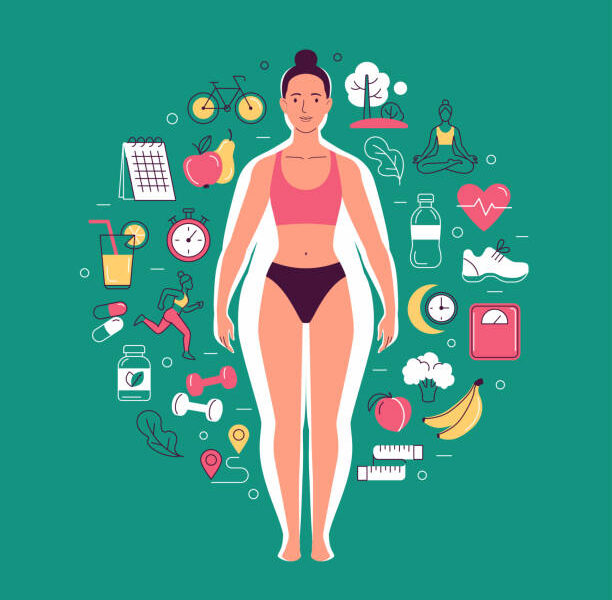Content Warning: Mention of disordered eating, abuse
Diet and exercise: The cure-all for any health issue, right? Social media is smattered with self-proclaimed “fitness coaches” and “dieticians” who prescribe these quick fixes for anyone wanting to lose weight quickly. The truth is that these “transformation” diets prey on those with deep-seated body image issues and internalized fatphobia by promising a new body in a matter of weeks. However, such drastic diets can have extremely detrimental physiological and psychological effects.
Those who engage in any form of diet become more vulnerable to developing an eating disorder as dieting itself can be considered a form of disordered eating. Extreme dieting can also lead to cardiac dysrhythmias—irregular heartbeats—and even cardiac death if not closely monitored. The heart uses fat, which is released as a result of an abrupt reduction in calories, instead of sugars for energy, putting more strain on the organ’s ability to function.
Calorie counts and suggested portions are notoriously inaccurate measures of how much one should eat because all bodies are different. The counts on nutrition labels are based on averages that ignore the complexity of digestion and the diversity of each individual’s unique gut biome and metabolic rate.
As Chloé Fleurent-Grégoire, a registered dietician and MSc candidate at McGill explained, restrictive diets are not sustainable and lead to unhealthy eating patterns.
“In general, an individual who is constantly dieting will suffer from negative physiological consequences,” Fleurent-Grégoire wrote in an email to The McGill Tribune. “Retrospective data demonstrates that more than two-thirds of people who pursue weight loss don’t sustain a clinically significant weight reduction (i.e., five per cent of body weight) after five years. This may lead to individuals wanting to pursue weight loss once again, leading to the yo-yo dieting pattern.”
The yo-yo effect of extreme dieting is the process of losing and regaining weight in a cyclical manner. It can lead to micro-tears in blood vessels which can cause atherosclerosis—the hardening of the arteries—as well as other types of heart disease. Severely limiting calorie intake almost guarantees deficiencies of certain vital vitamins and minerals, leading to a less efficient immune system and weaker bones. Other consequences noted by Fleurent-Grégoire include loss of muscle mass, hormonal disturbances, chronic fatigue, interrupted hunger and satiety cues, and much more.
In addition to the physiological effects of these crash diets, dieting can trigger mental health issues such as depression and anxiety. Dieting, according to Fleurent-Grégoire, can create obsessive and dichotomous thinking about food as either good or bad with no in-between, and strict food rules, food guilt, or shame—all of which can lead to further disordered eating.
Those who become obsessed with thoughts of food may also develop harmful behavioural symptoms such as skipping meals, partaking in exhaustive amounts of exercise, and binge eating.
“Some people may attribute the “failure” to their poor willpower instead of the unrealistic food rules related to the fad diet,” Fleurent-Grégoire wrote. “This shame attributed to ‘failure’ may lead to reduced self-esteem […] a potential side effect of the binge-restrict cycle.”
It is also important to consider the source of weight gain or the motivations behind diets to begin with. While many of those looking to diet are doing so because of their own insecurities, trauma can also lead to weight gain that cannot be avoided with any quick-fix diet. Obesity is more prevalent in those, especially women, who have experienced physical or sexual abuse. However, because of the pervasive nature of fatphobia, those perceived as obese or characterized as being overweight by the problematic body mass index (BMI) may be prescribed extreme weight-loss regimens by physicians which do not address the underlying mental or comorbid physiological issues.
The normalization of crash diets is fatphobic, dangerous, and unsustainable for those looking to improve their overall health.
For those looking for a healthier lifestyle, Fleurent-Grégoire had several suggestions.
“Flexibility. Making sure to include foods you love and avoid dichotomous thinking,” Fleurent-Grégoire wrote. “[Cook] more often and eat with family and friends.”






